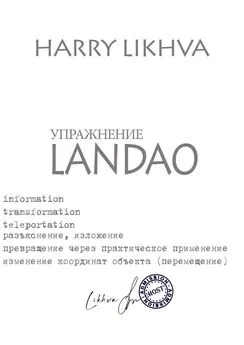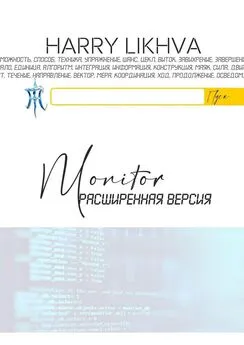Harry Turtledove - Give me back my Legions!
- Название:Give me back my Legions!
- Автор:
- Жанр:
- Издательство:неизвестно
- Год:неизвестен
- ISBN:нет данных
- Рейтинг:
- Избранное:Добавить в избранное
-
Отзывы:
-
Ваша оценка:
Harry Turtledove - Give me back my Legions! краткое содержание
Give me back my Legions! - читать онлайн бесплатно полную версию (весь текст целиком)
Интервал:
Закладка:
“I am,” Sigimerus answered.
Varus reached out to touch the golden fibula that fastened Sigimerus’ cloak. That would have been uncouthly familiar, except for what he said next: “Even more than this, he is an ornament to you.”
Sigimerus smiled. “He is,” he agreed, running through another part of the conjugation of the verb to be.
“I miss my own son. He is far away, studying- - learning - in Greece,” Varus said. He set a hand on Arminius’ shoulder. “When I met your son, it was almost as if I had mine with me once more. Not quite - you will understand that. But almost.”
He wore a toga, chalky white wool with a purple border. Sigimerus’ cloak was of bearskin trimmed with fine sealskin pained in trade from the Chauci, a tribe that lived by the North Sea. Varus’ hair was cut short; Sigimerus let his grow long. Varus shaved his face. Sigimerus wore a beard. The Roman was short and heavyset, the German tall and lean. Varus had none of the Germans’ language, Sigimerus only a little Latin.
And yet they were both proud fathers. For a moment, Arminius found them more alike than different. But only for a moment. Sigimerus cared nothing for Varus’ son. Varus, whether he fully realized it or not, wanted to enslave Sigimerus’. What difference could be greater than that?
“Please excuse me for keeping you waiting,” Varus said. “I was discussing, ah, certain matters with my aides. We aim to bring peace to Germany, you understand.”
“I understand, yes,” Sigimerus said. Arminius feared he would add, If you want to bring peace, then leave! But, to his relief, Sigimerus left it there.
Hearing him say he understood made Varus believe he approved. “Good, good,” the Roman said. “I am glad that, like your son, you see the advantages of working with Rome.”
How would Sigimerus answer that without spilling the chamber pot into the stew? Arminius’ father looked at Quinctilius Varus with wide, blue, innocent eyes. “Pardon me?” he said.
“I was talking about the advantages of cooperating with Rome,” Varus said. Sigimerus still looked artfully blank. Varus turned to Arminius. “Perhaps you would be kind enough to translate for your father?”
“Of course, sir,” Arminius replied, and he did. Though he was sure Sigimerus already understood the Roman’s words, he rendered them into the Germans’ tongue. He did a proper job of it, too, in case another Roman, one who knew the language, stood listening behind a curtain.
Sigimerus’ enlightenment was a small masterpiece of its kind. The Romans put on stage plays to entertain themselves. Arminius had seen a couple in Pannonia. Once he got the idea of playacting, he enjoyed them. Sigimerus had never seen or even imagined one, but he could have gone up on a stage himself.
“Oh,” he said. “Work with! Now I follow you, sir!”
Varus smiled. He didn’t notice that Sigimerus didn’t say he agreed with him or approved of him. Arminius didn’t notice, either, not right away. When he did, he realized there was more to his father than first met the eye: not always the most comfortable realization a young man can have.
“Will you both dine with me?” Varus immediately answered his own question before the Germans could: “Of course you will! You are my guests. I am pleased that you are my guests. Your being here shows the world that Germans and Romans can get along.”
“We are pleased to show that, sir.” Where his father had evaded, Arminius lied without hesitation or compunction. Under other circumstances, Sigimerus would have had every right to beat him for being so shameless.
“Well, so am I,” Varus answered. “And your being my guests will go a long way toward laying to rest some of the, ah, unfortunate rumors that have attached themselves to your name, Arminius.”
“That would be very good,” Arminius said, to himself alone adding, especially since those rumors are true.
His being here might lay them to rest among the Romans who suspected him. But it also might make his fellow Germans wonder whether he was turning traitor. That could cause him problems after the Romans went back over the Rhine to winter in Gaul.
But even if it did, he could repair such things later. For now, he was inside the Roman encampment. As long as he stayed here, he would do well to act as much like a Roman as he could.
Sigimerus coughed a couple of times. What that would have amounted to had he put it into words, Arminius could imagine. Luckily, Quinctilius Varus couldn’t.
“Aristocles!” the Roman called.
“Yes, sir?” The pedisequus might have appeared out of thin air. One heartbeat, he was nowhere to be seen. The next, he stood at Varus’ elbow.
“Tell the cooks Arminius and his distinguished father will be dining with me tonight,” Varus said.
“Certainly, sir.” Aristocles vanished almost as smoothly as he’d manifested himself. He might have made a good conjurer, amusing people by pretending to pull coins or jewelry out of their ears and noses. Or, Arminius thought uneasily, he might be a real wizard, one who could snap his fingers and appear or disappear. Arminius thought that unlikely - wizards were more often talked about than seen - but you never could tell.
Or could you? Why would a true wizard let an ordinary man enslave him? That struck the German as something only a fool would do. Aristocles was no fool, which had to mean he was no wizard, either: only a man uncommonly light on his feet.
The cooks served mutton without garlic. That had to be a compliment to Arminius and Sigimerus, because the Romans doted on the stuff. Varus noticed, too. He remarked, “It’s, ah, interesting flavored with mint, isn’t it? Different from what I’m used to.”
“Good,” Sigimerus said. The amount of meat he’d put away said he approved of what the cooks had done.
“We might seethe the mutton instead of roasting it,” Arminius said. “But I think my father is right - it is very good. We thank you for it.” He sucked marrow out of a bone.
“My pleasure, believe me,” the Roman said. “And I assure you that it is also my pleasure to see Germans who trust me and my people enough to be our guests and accept our hospitality.”
“Who would not want to accept it when it is so generous?” Arminius said. He wasn’t sure his father had followed all of what Varus said. If Sigimerus had, he was better at keeping his face straight than Arminius had guessed. If he was, good; in Mindenum, he needed to be.
“Will you two spend the night with us?” Varus asked. “We can run up a tent for you. You, Arminius, will be familiar with our arrangements from your time of service with the auxiliaries. You can acquaint your distinguished father with them as well.”
Arminius went back and forth with his father in the Germans’ tongue to let him know what Varus had offered. After a moment’s thought, Sigimerus nodded. “It would be our privilege, sir,” Arminius told Varus in Latin.
“Splendid!” Varus exclaimed. Arminius reflected that he was turning into a better liar than he’d ever wanted to be.
Lucius Eggius looked back at the long column of legionaries he led. They slogged through the German forests and marshes, slapping at the mosquitoes and biting flies that plagued them and swearing at the officers who’d sent them forth.
Since Eggius felt like swearing at those officers, too, he didn’t even try to restrain the men. Let them cuss, he thought. It’ll make them feel better, and it won’t hurt the buggers they’re cussing out. . . . Too stinking bad.
“Come on, boys!” he called. “Looks like better ground up ahead.”
“If it was any worse ground, it’d swallow us up and we’d never be seen again,” one of the soldiers said.
“Oh, cheer up, Gnaeus,” Eggius said. “At least the barbarians aren’t giving us any grief.”
The legionary was not cheered. “Yes, and that’s all wrong, too,” he answered. “Why aren’t they? It’s . . . suspicious, like.”
“Quinctilius Varus says it’s because they’re finally coming to see we really are their masters.” Eggius, loyal to the idea of Rome if not necessarily to the blue-blooded chuckleheads who represented that idea in Germany, gave forth with the party line.
Gnaeus wasn’t the only soldier who jeered at him - and at Varus. Unlike the governor, the men had been going through these woods for years. They knew the Germans weren’t subdued. So did Lucius Eggius, but he’d given up on trying to get his superiors to see it. Sometimes you could yell till you went blue in the face, and it didn’t do you any good.
He hadn’t been lying to the legionaries. Unlike some of his superiors, he didn’t think that was a good idea. The ground ahead did improve. It was higher, less muddy, less swampy. It didn’t try to suck the caligae off the soldiers’ feet at every step they took.
Eggius glanced toward the sun. At least he could see it. With the beastly German weather, there was no guarantee of that. It neared the western horizon. “As soon as we find a spring or a stream, we’ll camp for the night,” Eggius said.
He didn’t think that would take long, and he proved right. He’d never seen any place for water like Germany. It bubbled out of the ground here, there, seemingly everywhere. When the legionaries found a spring, they began digging in around it. Fortified camps took a lot of work, but nobody grumbled. They bumped up your chances of lasting long enough to get gray hair and wrinkles, and the men knew it.
Ditch. Earthen rampart made from the spoil thrown out of the ditch. Sharpened stakes atop the earthwork. Gates facing the cardinal directions. Main streets running north and south, east and west between the gates. Tents always placed just so inside the square perimeter. Every soldier had a particular job to do, and everybody, through long familiarity, did it without much waste motion.
Torches flared along the rampart, ensuring that the Germans couldn’t sneak up on the camp. Sentries paced the circuit, exchanging passwords and countersigns. Eggius chose Latin words with r’s in them for those. The Romans trilled their r’s, while the Germans gargled theirs. Not even a barbarian who’d served as an auxiliary and knew Roman military customs would be able to fool a sentry. Eggius hoped not, anyhow.
Thinking of Germans who’d served as Roman auxiliaries naturally made Lucius Eggius think of Arminius. When his column left Mindenum, the young German and his father had been installed there, happy as a couple of sheep in clover. Quinctilius Varus thought Arminius a house snake, not a viper.
Lucius Eggius sighed. He hoped the governor was right. He had trouble believing it, but he had even more trouble believing he could change Varus’ mind. Men like that didn’t listen to men like him. To Varus, he was nothing but a craftsman who’d chosen a necessary but nasty way to make a living. No, Augustus’ grand-niece’s husband wouldn’t pay attention to a veteran legionary.
And, since he wouldn’t, what point to brooding about it? No point at all. Eggius shoved it out of his mind. He had plenty of more immediately urgent things to worry about.
When the Romans got moving again the next morning, scouts came trotting back from the woods ahead. That they came back was a good sign in and of itself. “No Germans in there!” one of them called.
“Good,” Eggius answered. He turned to the men he led. “We’ll go on through - double time. The sooner we’re out the other side, the better.”
Before plunging down the path, he made sure his sword was loose in its scabbard. The scouts had done their job, but you could never be sure they’d done enough. Germans were like any other beasts of prey: they were masters at leaping out from hiding.
Читать дальшеИнтервал:
Закладка:







